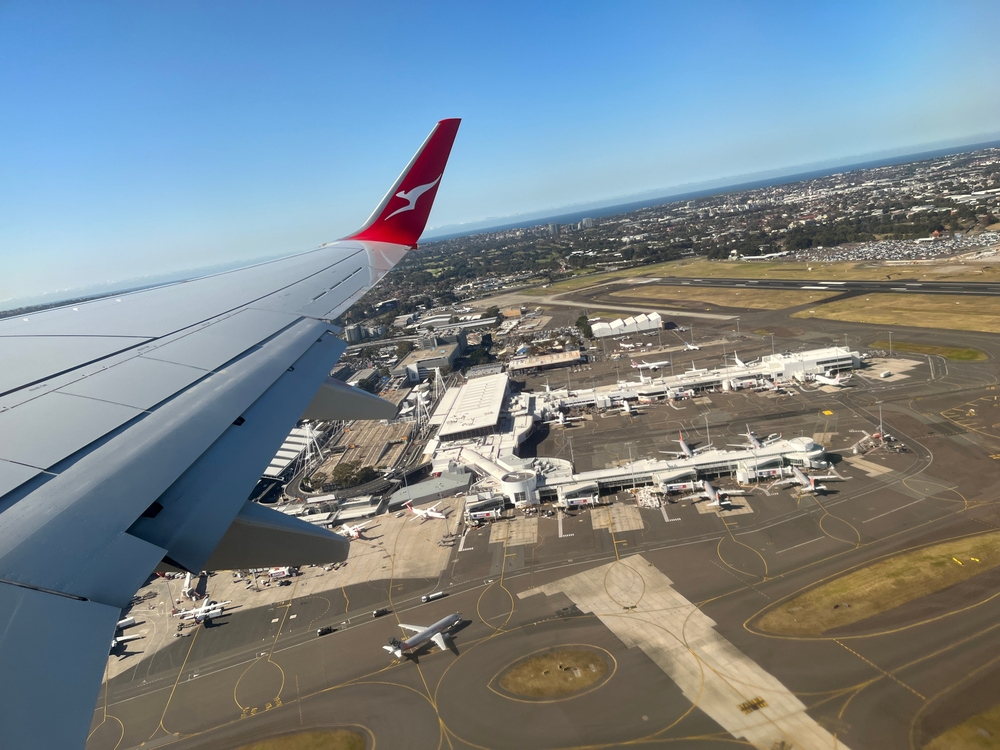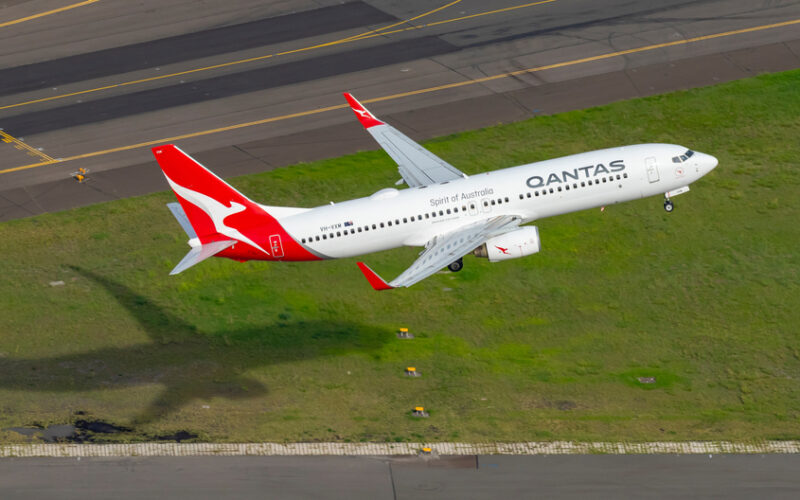Australian flag carrier Qantas has begun installing ‘split scimitar’ winglets on 23 of its Boeing 737-800s. The refitting program is part of wider efforts that the carrier is taking as part of efforts to improve fuel efficiency and lower its emissions.
The program, which replaces the upward-swept standard winglets that were originally fitted when the airline’s fleet of Boeing 737-800s were built, has already begun. The first aircraft selected to undergo the refitting process (12.3-year-old VH-VZU) has already passed through the carrier’s MRO facility in Brisbane. The program is scheduled to last until 2026.
According to ch-aviation, Qantas currently has 75 Boeing 737s in its fleet, with an average age of 15.8 years. According to Qantas, the 23 737s that are being fitted with split scimitar winglets are the last examples that will be retired from its fleet. The aircraft fitted with the new winglets will be deployed by Qantas on a range of both domestic Australian and international destinations such as Bali and Fiji.
The airline expects the new winglets will improve the fuel efficiency of each aircraft by up to 2% and will cut over 8,000 tons in carbon emissions once all 23 aircraft have been retrofitted in the next two years.
“Qantas is focused on improving the operational efficiency of our current fleet, even as it takes delivery of newer fuel-efficient jets,” said Andrew Parker, the airline’s Sustainability Chief.
“The new winglets are one of the many changes, small and large, that customers will notice as we transform our operations to be more sustainable,” he added.

While the Boeing 737-800 has formed the backbone of the Qantas short-haul fleet for many years, the type is already earmarked for replacement as newer aircraft enter the carrier’s fleet in the coming years.
The 737s will eventually be replaced over the next decade by Airbus A220s, the first of which have already been delivered to the carrier, and A321XLRs.

